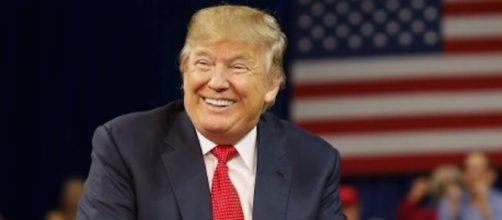For politicians words are weapons but there are times weapons backfire and damage the user rather than the intended target. Keeping campaign promises does not justify acting against the Constitution and on Wednesday the Oval Office was taught, once more, that electoral victory does not give any President unlimited decision making power.
Rallies, statements and orders
During his successful run for office then Republican candidate Donald Trump repeatedly stated that he would impose a Moslem ban once he came to power. These calls were greeted strongly by those present and this encouraged the future President to make the theme a permanent fixture of his rudimentary agenda.
In one of his first official acts once seated in the Oval Office President Trump signed an order banning Moslem immigration from seven “at risk” countries in the Middle East. This order caused major disruption in the airports, national protests and a series of legal challenges to the order by a number of States which led to its eventual blocking.
Rather than challenge the block the President then signed a watered down version of the order to attempt to overcome the potential unconstitutional issues of the first order. This bid failed on Wednesday when Hawaiian Federal court Judge Derrick Watson blocked the order nationally.
The power of words
During the hearing the Department of Justice lawyers defending the order had repeatedly stated that it was not a Moslem ban and therefore in contravention of the Constitution.
As in the previous court cases lost by the Oval Office the deciding factor was in the words of the President and members of his staff including White House Senior Advisor Stephen Miller and also Republican Rudy Giuliani who both referred to the intention of the order as a Moslem ban.
Ultimately however, the most powerful words backing the claim that the order was a Moslem ban were those of the President himself during the presidential campaign, the transition period and subsequently in the White House. These words are unequivocal.
As reported by the Guardian, in giving his decision to block the order Judge Watson referred directly to these statements by the businessman become politician. One part of the Judge’s motivations is particularly telling:
“In an interview on January 25, 2017, Mr.
Trump discussed his plans to implement ‘extreme vetting’ of people seeking entry into the United States. He remarked: ‘[N]o, it’s not the Muslim ban. But it’s countries that have tremendous terror. . . . [I]t’s countries that people are going to come in and cause us tremendous problems.’ …
When signing the first Executive Order [No. 13,769], President Trump read the title, looked up, and said: ‘We all know what that means.’ President Trump said he was ‘establishing a new vetting measure to keep radical Islamic terrorists out of the United States of America’, and that: ‘We don’t want them here.’”
The most damning statement by the judge was when he stated “The illogic is impalpable”.
Reaction and Supreme Court
Naturally the reaction of the Oval Office was one of anger, accusing the Judge of “unprecedented overreach” in blocking the order by the President.
If the aim of the second order was to avoid a Supreme Court challenge to the first order that intention failed miserably when the President promised that the fight for the order will go all the way to the highest court in the land. The issue of the Moslem ban will now continue through the courts but it is only one battle that the White House is now fighting in the first two months of the new Presidency.
This issue again shows the inexperience of President Trump in government and his lack of knowledge of the limits placed on the Executive Branch by the Constitution.
The next step will now be on the Supreme Court, but from Judge Watson’s words yesterday it would take little to understand that the case has become a classic example of “checks and balances” with the White House destined to lose a battle that was totally avoidable.

